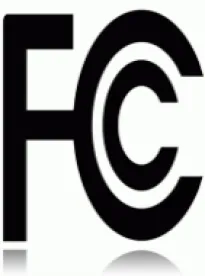Following the D.C. Circuit’s decision in Verizon v. FCC, which struck down several key elements of its 2010 Open Internet Order, the FCC yesterday released a Notice of Proposed Rulemaking (NPRM) that initiated a renewed effort by the FCC to foster and protect an “open” Internet. In what is likely to become a highly-contested proceeding, the FCC is proposing regulations to guard against the “real threat” posed by the power of broadband providers while remaining within the bounds of its authority as clarified by the D.C. Circuit.[1]
Citing the continued need for “open” Internet protections, the FCC largely proposes to retain the definitions and scope of the rules proposed in the Open Internet Order. Unsurprisingly, at the core of this NPRM are three items carried over from the Open Internet Order: transparency, blocking, and discrimination:
-
Transparency.[2] The Open Internet Order required public disclosure of certain information to end users. Buoyed by the D.C. Circuit’s approval of these regulations, the NPRM seeks comment on additional disclosures tailored to specific parties, such as edge providers and end users. Together, these proposed requirements appear quite burdensome:
-
To Consumers. The FCC asks if it should require broadband providers to supply detailed performance characteristics (speed, latency and packet loss), and if broadband providers must identify application-specific usage or distinguish which user or device contributed which part of the total data usage.
-
To Edge Providers. The FCC seeks comment on the extent to which the transparency rules should apply to providers who seek to exchange traffic with broadband networks.
-
To All Stakeholders. The FCC tentatively concluded that broadband providers must disclose when they make changes to their network practices, as well as any instances of blocking, throttling, and pay-for-priority arrangements. Broadband providers must also disclose detailed information regarding network congestion.
-
Blocking.[3] Acknowledging that the D.C. Circuit vacated the anti-blocking provisions of theOpen Internet Order because it would impermissibly subject broadband providers to common carriage regulation, the FCC proposes to allow broadband providers to negotiate individualized arrangements — i.e., the much discussed “fast lanes” for edge providers willing to pay. Such arrangements, however, would be guided by a number of principles:
-
Commercial Reasonableness. Any individualized agreement between an edge provider and a broadband provider would be subject to a commercial reasonableness standard (discussed below).
-
Minimum Level of Service. The Commission proposes and asks for comments on three methods of evaluating minimum levels of services: (i) a “best efforts” standard on the part of broadband providers; (ii) a “minimum quantitative performance” standard; and (iii) a “reasonable person” standard measured from the standpoint of an end user.
-
Anti-Discrimination.[4] The FCC proposes to replace its “unreasonable discrimination” rule struck down by the D.C. Circuit with a new standard that would prohibit only practices that “threaten to harm Internet openness.” Taking the D.C. Circuit’s suggestion to borrow from the language articulating specific factors for reviewing data roaming agreements, the FCC proposes a far-reaching rule requiring “commercially reasonable” practices. To supply content to the seemingly vague standard, the FCC proposes some guideposts:
-
Standard for Commercial Reasonableness. The FCC proposes to use a flexible, case-by-case “totality of the circumstances” test for evaluating commercial reasonable practices, considering such factors as impact on competition, impact on consumers, impact on speech, technical characteristics, good faith negotiation, and industry practices.
-
Interplay with Anti-Blocking Rule. The “commercial reasonableness” rule will be applied separately from the “anti-blocking” rule. Accordingly, it would appear that an agreement could comply with the anti-blocking rule while running afoul of the commercial reasonableness requirement.
-
Peering/Interconnection. Continuing with its existing policy, the FCC proposed that the exchange of traffic between networks would be subject to neither the anti-blocking nor the anti-discrimination provisions.
-
“Pay-for-Priority”. The FCC asks for comments on whether pay-for-priority services areper se unreasonable, and whether the FCC should go further and ban them outright. Also, the FCC proposes a “rebuttable presumption” against broadband provider agreements with affiliates (e.g., Comcast and NBC).
-
Dispute Resolution. The FCC also proposes a dispute resolution process, including an “ombudsperson” to represent the interests of consumers, start-ups, and small businesses.
Underlying these proposed regulations is a threshold issue that the FCC must address: what statutory authority does it have to implement regulations beyond those approved of by the D.C. Circuit? The D.C. Circuit recognized that the FCC has broad authority to enact regulations encouraging broadband deployment under Section 706 of the Telecommunications Act. But the NPRM seeks comment not only on the availability and extent of its authority under Section 706; it also proposes to reverse more than a decade of regulatory policy and statutory interpretation in its administration of the Communications Act (approved by the United States Supreme Court) by considering the reclassification of broadband services as Title II communications services instead of information services.[5] FCC Chairman Wheeler indeed has indicated that Title II reclassification was becoming an increasingly viable option for promoting the Commission’s open internet policy imperatives.[6]
While the NPRM also seeks comment on the possibility that the FCC may forebear from imposing some elements of common carrier regulation on broadband Internet, there is no question that Title II reclassification will be a hotly debated issue during the comment period.
The FCC additionally seeks comments on the First Amendment implications of its proposed rules, which, also, is sure to garner much attention during the comment period.[7]
The NPRM is just the beginning of the battle over the future of the Internet. Public comments are due to be filed July 15, with reply comments due to be filed September 10.
[1] See Protecting and Promoting the Open Internet, Notice of Proposed Rulemaking, GN Docket No. 14-61, FCC 14-61, (rel. May 15, 2014), ¶5.
[2] Id. at ¶¶63-87.
[3] Id. at ¶¶89-109.
[4] Id. at ¶¶110-139
[5] Id. at ¶148.
[6] See Finding the Best Path Forward to Protect the Open Internet.
[7] NPRM at ¶159.





 />i
/>i
